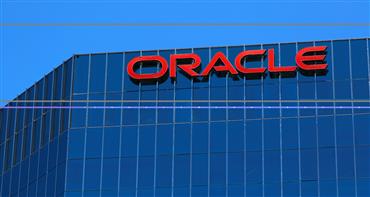
Oracle is an enterprise software vendor based in Austin, Texas. It specializes in database software and enterprise software products, including enterprise resource planning (ERP), human capital management (HCM), customer relationship management (CRM), enterprise performance management (EPM), customer experience commerce (CX commerce), and supply chain management (SCM).
The company is increasingly focused on supporting generative AI across its database, infrastructure, and applications offerings. Oracle has a market cap of $483 billion, making it the 11th largest tech company in the world.
Oracle: Is It Still the Number One Database in the World?
In the ever-evolving world of database technology, Oracle has long been a dominant force. Known for its robust performance, enterprise-grade security, and extensive feature set, Oracle Database has been the go-to choice for businesses and government institutions for decades. But with the rise of cloud computing, open-source databases, and competition from rivals like Microsoft SQL Server, MySQL, and PostgreSQL, is Oracle still the undisputed leader in database technology?
According to industry analysts, Oracle continues to hold a strong market share in the database industry. Gartner’s latest reports place Oracle Database among the top contenders in the database management system (DBMS) market. However, recent trends indicate a shift in how businesses are choosing their database solutions. With the increasing demand for cloud-based and open-source databases, Oracle faces stiff competition.
Oracle’s primary competitors include:
Microsoft SQL Server: A popular choice for enterprises using Microsoft’s ecosystem, known for its ease of use and integration with Azure.
MySQL: An open-source database widely used for web applications and supported by Oracle itself.
PostgreSQL: Gaining traction for its open-source flexibility, advanced features, and cost-effectiveness.
Amazon Aurora: A cloud-native database service from AWS designed for high performance and scalability.
One of the biggest challenges for Oracle is the increasing adoption of cloud-based solutions. While Oracle has made significant investments in Oracle Cloud Infrastructure (OCI) and Autonomous Database technology, it faces competition from Amazon Web Services (AWS), Microsoft Azure, and Google Cloud, which offer their own database solutions.
Despite competition, Oracle remains a leader in enterprise database solutions, particularly for large-scale and mission-critical applications. Its investments in artificial intelligence, automation, and cloud integration ensure that it stays relevant in an industry that is rapidly changing.
However, the question remains: Is Oracle still the number one database in the world? The answer depends on the criteria used for evaluation. If measured by enterprise adoption, security, and advanced features, Oracle continues to be a dominant force. But when considering market trends, cloud adoption, and the growing preference for open-source alternatives, Oracle’s leadership is being increasingly challenged.
As the database landscape evolves, Oracle will need to continue innovating to maintain its position. The coming years will be crucial in determining whether it can adapt to changing market demands and retain its status as the world's top database solution.
Despite competition, Oracle remains a leader in enterprise database solutions, particularly for large-scale and mission-critical applications. Its investments in artificial intelligence, automation, and cloud integration ensure that it stays relevant in an industry that is rapidly changing.
Oracle’s Autonomous Database is one of its most significant innovations, offering self-driving, self-securing, and self-repairing capabilities. These AI-driven features reduce the need for human intervention, enhance performance, and improve security, making it a compelling choice for enterprises.
Additionally, Oracle has been focusing on multi-cloud interoperability, allowing businesses to run Oracle databases across different cloud platforms. This flexibility helps organizations avoid vendor lock-in and optimize their cloud strategies.
Oracle’s influence extends beyond enterprise IT. Governments, financial institutions, healthcare providers, and multinational corporations continue to rely on Oracle for their database needs. The company’s commitment to regulatory compliance, data protection, and high availability ensures its relevance across industries with stringent security and reliability requirements.
Furthermore, Oracle’s expansion into analytics and big data solutions enables businesses to extract deeper insights from their data. With the rise of artificial intelligence and machine learning, Oracle’s database ecosystem integrates advanced analytics to help organizations make data-driven decisions.
The answer to whether Oracle is still the number one database depends on the criteria used for evaluation. If measured by enterprise adoption, security, and advanced features, Oracle continues to be a dominant force. However, when considering market trends, cloud adoption, and the growing preference for open-source alternatives, Oracle’s leadership is being increasingly challenged.
Despite competition, Oracle has demonstrated resilience by evolving with market demands. Its continuous innovation in cloud computing, automation, and AI-driven database management ensures that it remains a formidable player in the industry. The coming years will be crucial in determining whether Oracle can maintain its top position or if a new leader will emerge in the database landscape.
As organizations shift towards cloud-native architectures and cost-effective solutions, Oracle must continue to adapt. While it holds a significant presence in the market, the landscape is rapidly changing. Businesses must weigh their options carefully, considering factors such as cost, scalability, performance, and ease of integration before selecting a database solution.
Oracle’s ability to remain competitive will depend on its continued investment in emerging technologies and strategic partnerships. Whether it maintains its crown as the world’s leading database provider or cedes ground to challengers, one thing is certain: Oracle’s impact on the database industry is far from over.